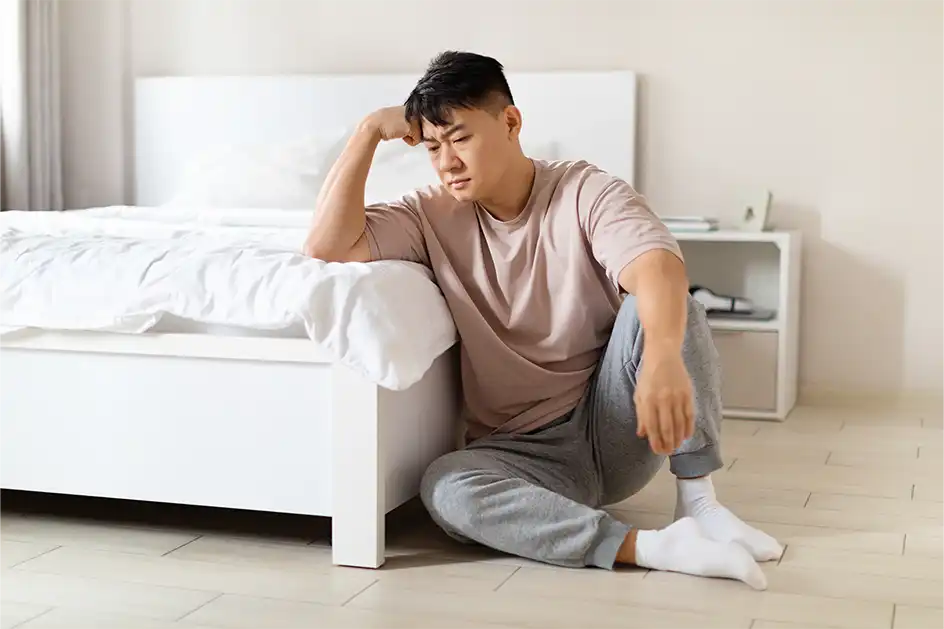Libido disorders, or changes in sexual desire, are common among both men and women and can affect individuals at any stage of life. Fluctuations in sexual desire can be influenced by a variety of physical, emotional, and psychological factors. While a low or high libido can be a normal part of life, persistent issues may point to an underlying condition. In this article, we’ll explore the causes, symptoms, and ways to manage libido disorders in both men and women, aiming for a healthy and fulfilling intimate life.
What are Libido Disorders?
Libido disorders refer to any persistent or recurring problems with sexual desire. These can range from a low libido—a lack of interest in sexual activity—to hypersexuality, where there is an excessive desire for sex. For many people, these fluctuations are temporary and may be caused by stress, lifestyle changes, or relationship dynamics. However, when libido changes are persistent, they may indicate a more complex issue that requires attention.
Understanding the root causes is crucial to addressing libido disorders effectively, whether you are experiencing a lack of desire or an increase that feels uncontrollable. Sexual health is a vital part of overall well-being, and managing libido disorders can significantly improve quality of life.
Common Causes of Low Libido in Men and Women
1. Hormonal Imbalance
One of the primary causes of libido disorders is a hormonal imbalance. Hormones such as testosterone, estrogen, and progesterone play a significant role in regulating sexual desire. In men, low levels of testosterone can lead to a decreased sex drive, fatigue, and even erectile dysfunction. In women, fluctuations in estrogen and progesterone—often during menopause, pregnancy, or due to birth control—can impact libido.
Signs of Hormonal Imbalance:
- Fatigue or low energy levels
- Mood swings or irritability
- Irregular menstrual cycles in women
- Decreased interest in sexual activity
Managing Hormonal Imbalance:
Addressing hormone levels through lifestyle changes, medical treatments, or natural supplements can help restore a healthy libido. Consulting a healthcare professional to check hormone levels is a good starting point.
2. Emotional and Psychological Factors
Psychological factors play a significant role in libido. Stress, anxiety, and depression are common causes of low libido in both men and women. Mental health issues can reduce interest in intimacy, cause fatigue, and affect the body’s natural response to sexual stimuli.
Tips for Managing Emotional Factors:
- Therapy: Seeking counseling or therapy can help address underlying emotional and psychological issues impacting libido.
- Mindfulness and Stress Reduction: Practicing relaxation techniques like mindfulness, deep breathing, and meditation can reduce stress and improve mental clarity.
- Open Communication: Talking openly with a partner about sexual concerns can ease anxiety and strengthen the emotional bond.
3. Physical Health Conditions and Medications
Several physical health conditions, such as diabetes, obesity, heart disease, and chronic illnesses, can impact sexual health and contribute to libido disorders. Additionally, medications like antidepressants, blood pressure medications, and birth control pills may have side effects that lower libido.
Managing Physical Health-Related Libido Disorders:
- Medical Check-Up: Consult a healthcare professional to identify any physical conditions that may be affecting sexual health.
- Adjust Medications: If medication side effects are causing a low libido, discuss alternatives or adjustments with your doctor.
- Healthy Lifestyle: Maintaining a balanced diet, regular exercise, and adequate sleep can support overall health and potentially improve libido.

4. Relationship Dynamics
Unresolved conflicts, lack of communication, and intimacy issues in relationships can affect libido for both men and women. Relationship stress can lead to a loss of interest in intimacy or cause anxiety around sexual encounters, creating a cycle that is difficult to break.
Improving Relationship Dynamics for Better Libido:
- Couples Counseling: Consider couples therapy to work through any relationship challenges that may be affecting sexual desire.
- Quality Time Together: Spend quality, non-sexual time together to rebuild emotional intimacy.
- Healthy Communication: Be open about desires, boundaries, and any concerns related to sexual health with your partner.
Managing Libido Disorders: Practical Tips for Men and Women
While the causes of libido disorders can be complex, there are several effective strategies to help manage and improve sexual desire in both men and women. Here are some tips:
1. Adopt a Healthy Lifestyle
A healthy lifestyle plays a crucial role in supporting sexual health. A balanced diet, regular exercise, and adequate sleep can all positively impact libido.
Healthy Habits to Boost Libido:
- Exercise Regularly: Cardiovascular exercise, strength training, and yoga can enhance mood, increase energy levels, and improve blood flow, all of which contribute to a healthier libido.
- Eat Libido-Boosting Foods: Include foods known to enhance sexual health, such as dark chocolate, avocados, nuts, and seeds.
- Prioritize Sleep: Quality sleep can reduce stress, improve hormone balance, and support overall well-being.

2. Consider Natural Supplements
For some, natural supplements can be an effective way to support libido and manage hormonal imbalances. Supplements like ginseng, maca root, and L-arginine are believed to enhance blood flow and support healthy sexual function.
Popular Natural Supplements for Libido:
- Ginseng: Known for its ability to reduce stress and improve energy levels.
- Maca Root: Often used to balance hormones and boost stamina.
- L-Arginine: An amino acid that helps improve blood circulation, supporting a healthy sexual response.
3. Focus on Mental Health and Self-Care
Mental health directly affects libido, so taking steps to improve emotional well-being is essential for managing libido disorders.
Self-Care Tips for Better Libido:
- Practice Self-Compassion: Avoid self-criticism and embrace self-care activities that make you feel good about yourself.
- Schedule Downtime: Make time for relaxation, hobbies, and activities that reduce stress.
- Seek Support: Don’t hesitate to seek professional guidance if you’re struggling with anxiety, depression, or other mental health issues that impact libido.
Libido disorders are a common and manageable issue that can impact both men and women at various stages of life. By understanding the underlying causes, whether they are hormonal, emotional, or physical, you can take proactive steps to address them. A healthy lifestyle, open communication with a partner, stress management, and, if needed, medical or therapeutic support, can significantly improve sexual health and restore a healthy libido.
If you or your partner are struggling with persistent libido disorders, remember that you are not alone, and solutions are available. Consult a healthcare professional to explore the best options tailored to your needs, and don’t be afraid to seek guidance to improve your sexual well-being and relationship dynamics.


